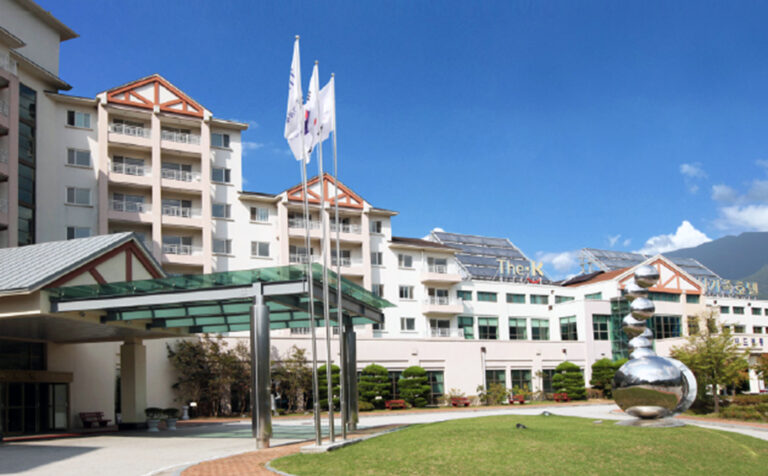The family hotel was legislated in 1986 under the ‘Tourism Business Act,’ the predecessor of the ‘Tourism Promotion Act,’ as a type of lodging establishment suitable for tourists traveling with their families. At that time, the ‘Enforcement Regulation of Tourism Business Act ‘ Annex 6-4 defined the facility standards for family hotels as follows:
- Guestrooms must be equipped with modest Korean or Western-style facilities suitable for family use.
- Entrance must secure an area of at least 0.5 square meters per person for the total capacity.
- Amenities
- Must install a public restaurant suitable for family use.
- Must install communal cooking facilities on each floor, allowing at least 30% of the guests to cook individually.
- Must have a grocery store or a convenience store.
- Must have at least one indoor sports facility and at least two outdoor sports facilities.
- Must be a building of three floors or less that can harmonize with the surrounding environment, if located in a tourist district, national or provincial park, or other scenic area with beautiful natural scenery.
In 1999, the registration standards for tourism businesses were elevated from the Enforcement Regulation to the Enforcement Decree of the Tourism Promotion Act, and overall regulations were simplified. The current ‘Enforcement Decree of Tourism Promotion Act’ Annex 1 defines the registration standards for family hotels as follows:
- Must have cooking facilities installed in each guestroom or a communal kitchen on each floor suitable for family tourists.
- Must have at least 30 guestrooms equipped with bathrooms or shower facilities.
- The area of each guestroom must be at least 19 square meters.
- Must have a system in place to provide services to foreigners.
- Must secure ownership or usage rights of the land and building. However, ownership must be secured if recruiting members.
The family hotel is a type of lodgingestablishment that is similar to resort condos under the Tourism Promotion Act and residential lodgings under the Public Health Control Act, as they are required to have cooking facilities according to Annex 1 of the Enforcement Decree of Building Act. As such, family hotels, resort condos, and residential lodgings may be in direct competition.
The difference is that family hotels cannot be sold fractional, whereas resort condos can according to Article 24 of the Enforcement Decree of Tourism Promotion Act, and residential lodgings can as well according to the Act on Sale of Building Units. Additionally, family hotels and resort condos can recruit members according to Article 24 of the Enforcement Decree of Tourism Promotion Act, while residential lodgings cannot. Therefore, the burden of raising funds necessary for the development of family hotels is solely borne by a single owner, making it relatively burdensome to secure development and operating funds. However, it makes quality control easier.


